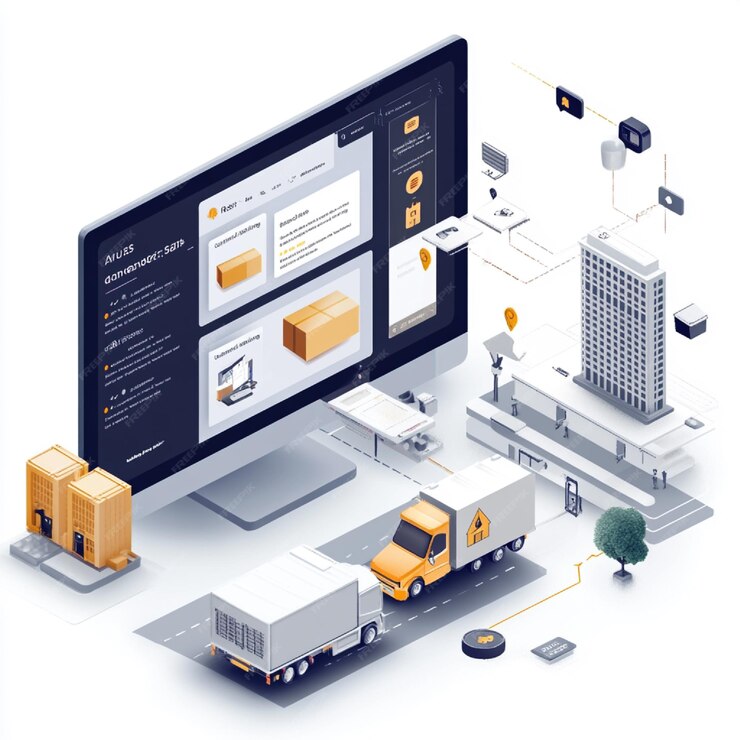What Are the Key Benefits of Implementing AI in the Logistics Industry?

In today’s fast-paced business landscape, the logistics industry stands at the forefront of innovation. Companies striving to streamline operations, optimize costs, and enhance efficiency are increasingly turning to advanced technologies. A logistics software development company plays a crucial role in integrating AI solutions that are revolutionizing how the logistics sector operates. This post explores the key benefits of implementing AI in logistics, highlighting its transformative impact on supply chain management, delivery processes, and customer satisfaction.
Enhancing Supply Chain Efficiency with AI
One of the most significant contributions of AI in logistics is optimizing the supply chain. AI-powered algorithms analyze vast amounts of data in real-time to identify patterns, predict trends, and provide actionable insights. Here are some ways AI enhances supply chain efficiency:
- Demand Forecasting: AI tools use historical data and market trends to accurately predict demand, ensuring businesses maintain optimal inventory levels.
- Dynamic Route Optimization: AI-driven logistics platforms evaluate traffic, weather, and delivery schedules to create the most efficient delivery routes.
- Real-Time Tracking: AI systems enable real-time monitoring of goods in transit, offering greater visibility and reducing the risk of delays.
Reducing Costs Through Predictive Maintenance
AI plays a pivotal role in minimizing costs by enabling predictive maintenance of logistics assets. Sensors embedded in vehicles and machinery collect performance data, which AI systems analyze to predict potential failures. This approach prevents unexpected breakdowns, reduces repair costs, and extends the lifespan of assets.
For instance, transportation fleets equipped with AI-powered predictive maintenance tools can schedule timely servicing, ensuring uninterrupted operations. This proactive approach significantly lowers operational expenses while enhancing reliability.
Improving Warehouse Management
AI has transformed warehouse operations, making them more efficient and accurate. Key benefits include:
- Automated Inventory Management: AI-powered systems monitor stock levels, reducing the risk of overstocking or stockouts.
- Robotic Process Automation (RPA): AI-driven robots perform repetitive tasks such as picking, packing, and sorting, enhancing productivity.
- Smart Storage Solutions: AI algorithms optimize storage space utilization, ensuring efficient inventory placement and retrieval.
Enhancing Customer Experience
Customer satisfaction is a critical success factor in logistics. AI enhances the customer experience in several ways:
- Accurate Delivery Estimates: AI analyzes various factors, such as traffic and weather, to provide precise delivery time estimates.
- Chatbots for Customer Support: AI-powered chatbots offer 24/7 customer support, resolving queries promptly and improving user satisfaction.
- Personalized Recommendations: AI systems analyze customer preferences to provide tailored solutions and recommendations.
Enabling Autonomous Vehicles
AI has paved the way for autonomous vehicles, which are transforming logistics by reducing human dependency and increasing efficiency. Self-driving trucks and drones equipped with AI systems navigate safely, optimize delivery routes, and lower fuel consumption. These advancements are particularly beneficial for last-mile delivery, where efficiency and timeliness are crucial.
Facilitating Sustainability
Sustainability has become a key focus area for the logistics industry. AI helps organizations achieve their environmental goals by:
- Reducing Fuel Consumption: AI optimizes routes and minimizes idle times, reducing fuel usage and emissions.
- Improving Load Optimization: AI algorithms ensure vehicles operate at full capacity, decreasing the carbon footprint.
- Monitoring Sustainability Metrics: AI systems track energy consumption and waste, enabling companies to adopt eco-friendly practices.
Overcoming Challenges in Logistics with AI
Despite its numerous benefits, the logistics industry faces several challenges that AI helps address:
- Managing Complexity: AI simplifies the complexities of supply chain management by offering predictive insights and actionable recommendations.
- Enhancing Security: AI systems detect anomalies and potential threats, ensuring the safety of goods in transit.
- Adapting to Market Changes: AI enables businesses to respond swiftly to changing market dynamics, ensuring resilience and competitiveness.
The Future of AI in Logistics
The adoption of AI in the logistics industry is expected to grow exponentially in the coming years. Emerging trends include:
1. Hyper-Personalization: AI will enable highly customized logistics solutions tailored to individual customer needs.
2. Collaborative Robots (Cobots): These robots will work alongside humans to enhance efficiency and safety in warehouses.
3. Advanced Analytics: AI-powered analytics tools will provide deeper insights, empowering businesses to make data-driven decisions.
4. Blockchain Integration: Combining AI with blockchain technology will enhance transparency and traceability in the supply chain.
Conclusion
AI is transforming the logistics industry by streamlining operations, enhancing efficiency, and improving customer experiences. From supply chain optimization to autonomous vehicles, the benefits of AI are vast and far-reaching. As businesses continue to embrace this technology, partnering with a reliable logistics software development company is essential to harness its full potential. By leveraging advanced logistics software development services, companies can stay ahead in an increasingly competitive market, ensuring long-term success and sustainability.
Note: IndiBlogHub features both user-submitted and editorial content. We do not verify third-party contributions. Read our Disclaimer and Privacy Policyfor details.







